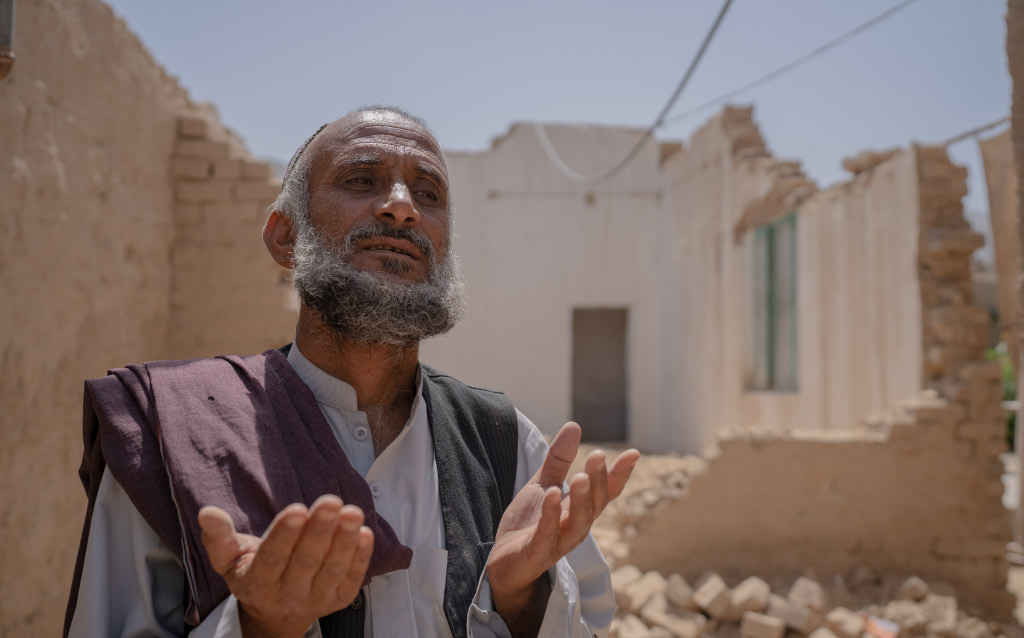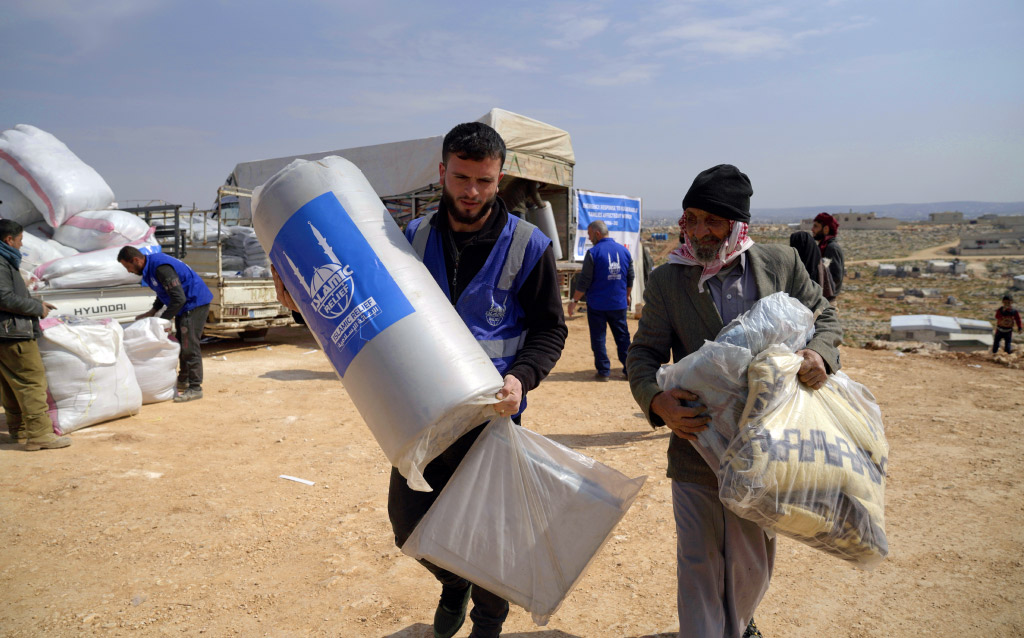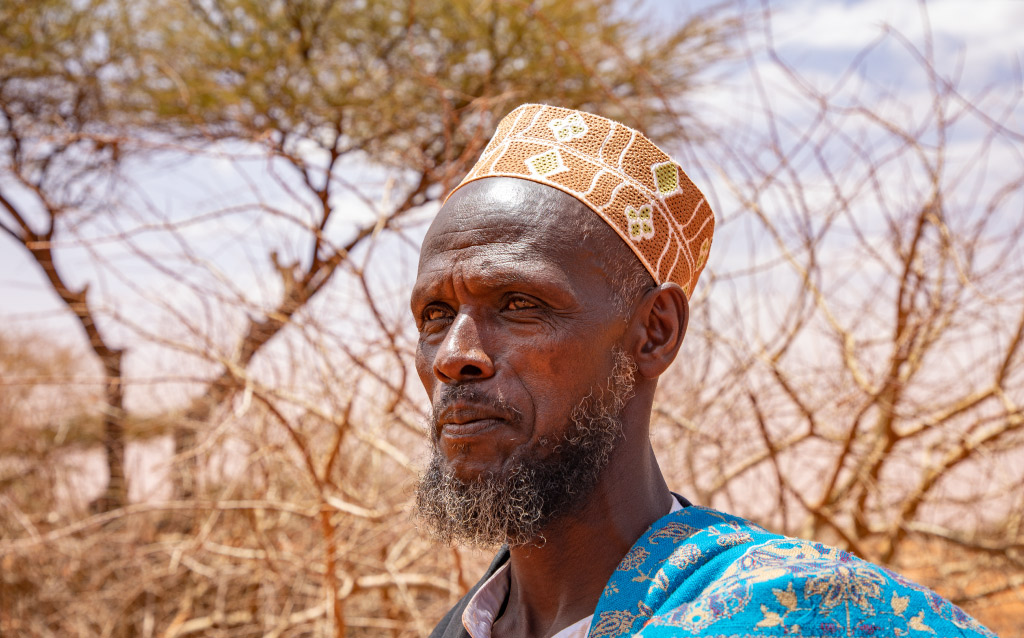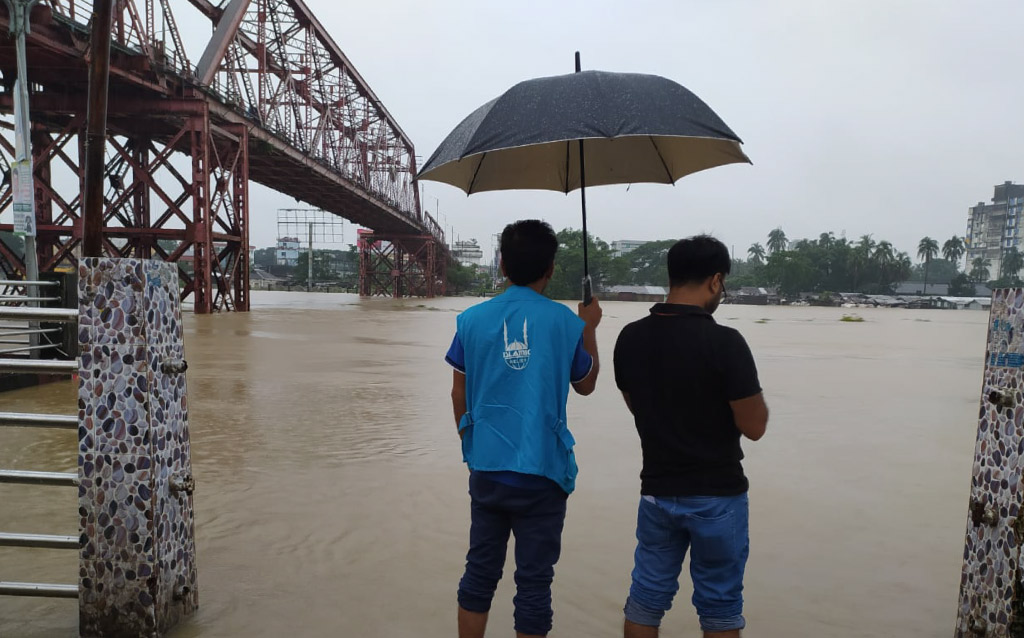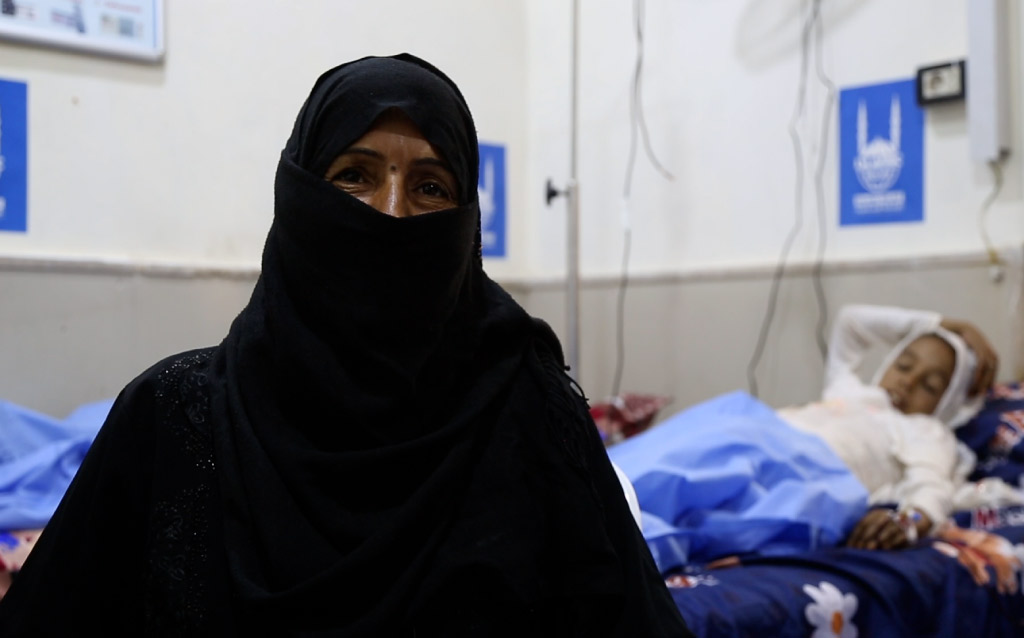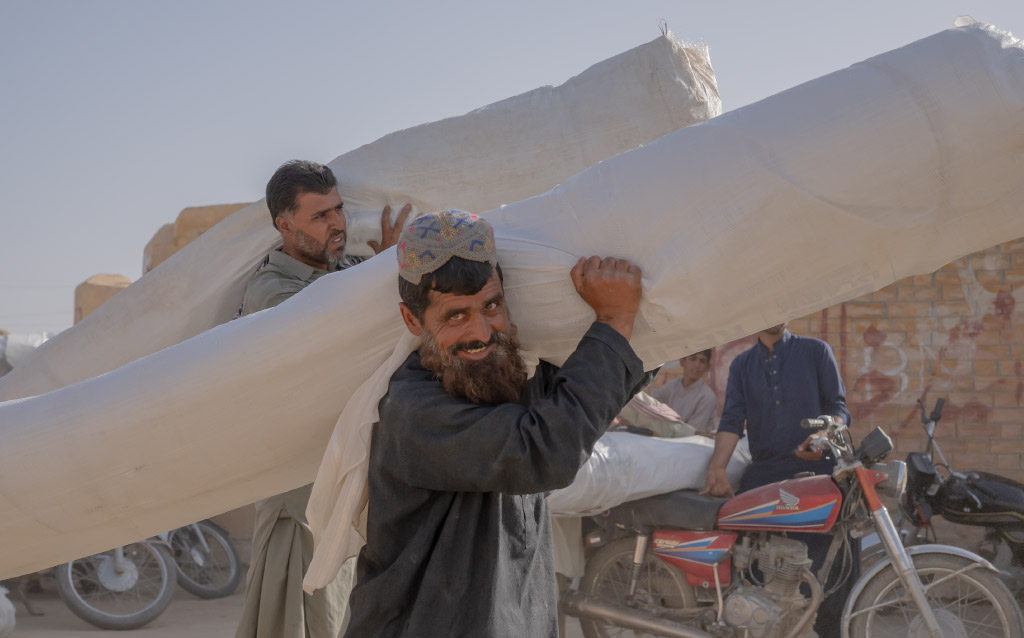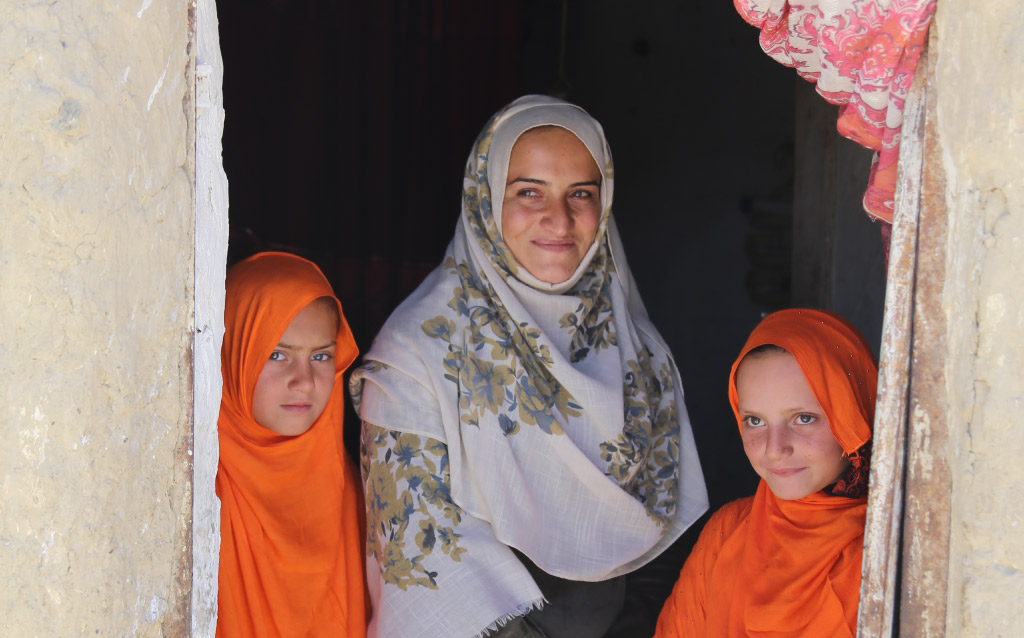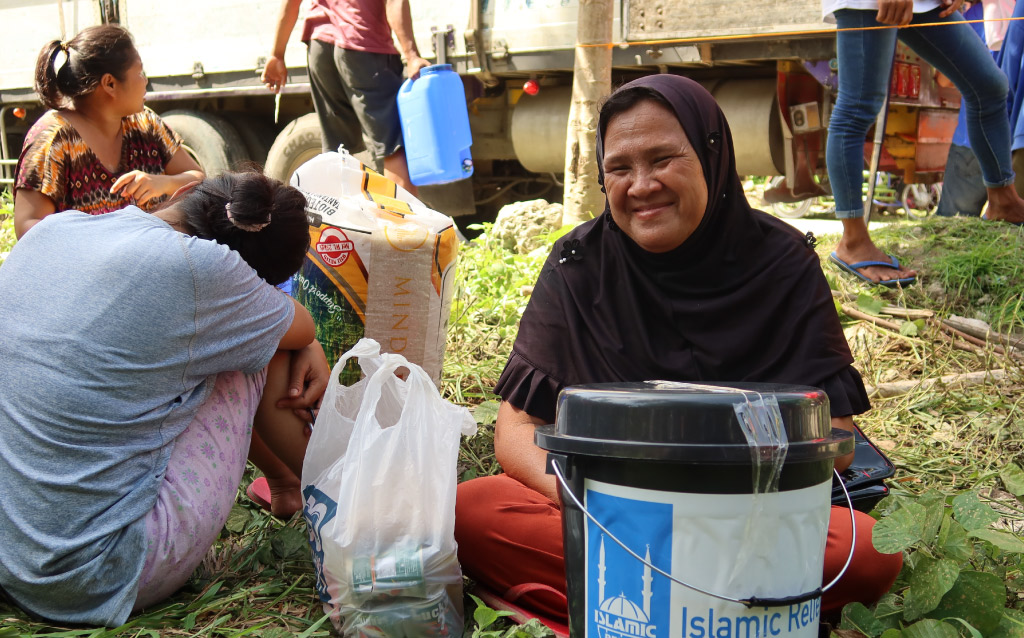March marks the seven-year anniversary of the Yemen crisis, which has shattered millions of lives. Hospitals and schools have been bombed and half of the country’s health facilities have shut down. Rising unemployment and the cost of living has pushed food and other essentials beyond the reach of many families. A staggering 17.4 million people face food shortages and half of all children under five years old are malnourished. Millions of people have fled their homes and 21 million people – more than two thirds of the population – urgently need humanitarian aid.
As one of the biggest partners to the UN World Food Programme (WFP) in Yemen, we give essential food supplies to over 2.3 million vulnerable people in 2022. We provide access to clean drinking water and distribute food, fuel and blankets during the cold winter months. In addition, our Orphan Sponsorship Programme provides reliable financial and education support to thousands of children facing extreme hardship in Yemen.

In Sana’a governorate, boys collect water from a facility repaired by Islamic Relief as part of our response to the dire and deepening crisis in Yemen.
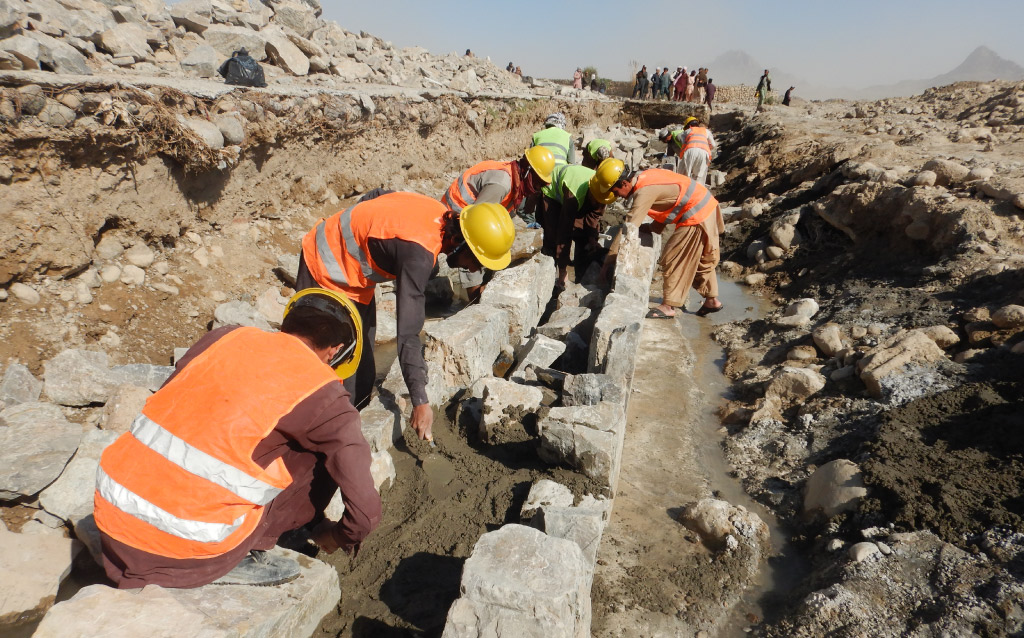
Disaster
A combination of political changes, economic collapse, the worst drought in 30 years and a freezing winter have left over 24 million people in Afghanistan facing extreme hunger and poverty.
Impact
A staggering 98 per cent of the population is not getting enough food to eat, according to the United Nations.
Response
Islamic Relief announces a new $22 million partnership with the United Nations Development Programme (UNDP) to boost food production, inject cash into the local economy and support women entrepreneurs in some of Afghanistan’s poorest places. The partnership is later increased to £19 million [$23 million].
“I wish and pray for all women to achieve their dreams”
“I am the local engineer for the project, which will create a flood barrier that is vital to protect the houses in this village from flooding,” explains Sakina, who lives in Bamyan, Afghanistan. The project she is working on is part of a landmark partnership between Islamic Relief and the UNDP. Together we aim to boost food production, inject cash into the local economy and support female entrepreneurs in some of Afghanistan’s poorest places.
The partnership provides employment opportunities for more than 158,000 people who could not rely on getting enough food. Covering six provinces, this cash-for-work intervention enables labourers to meet their family’s basic needs as they work to repair and improve over 1,200 kilometres of irrigation infrastructure, flood defences and bridges. Their efforts provide irrigated water to more than 98,400 hectares of agriculture land, directly benefitting more than 200,000 poor farmers. In the long term, these efforts will enable more than 1 million people to gain reliable access to sufficient food.
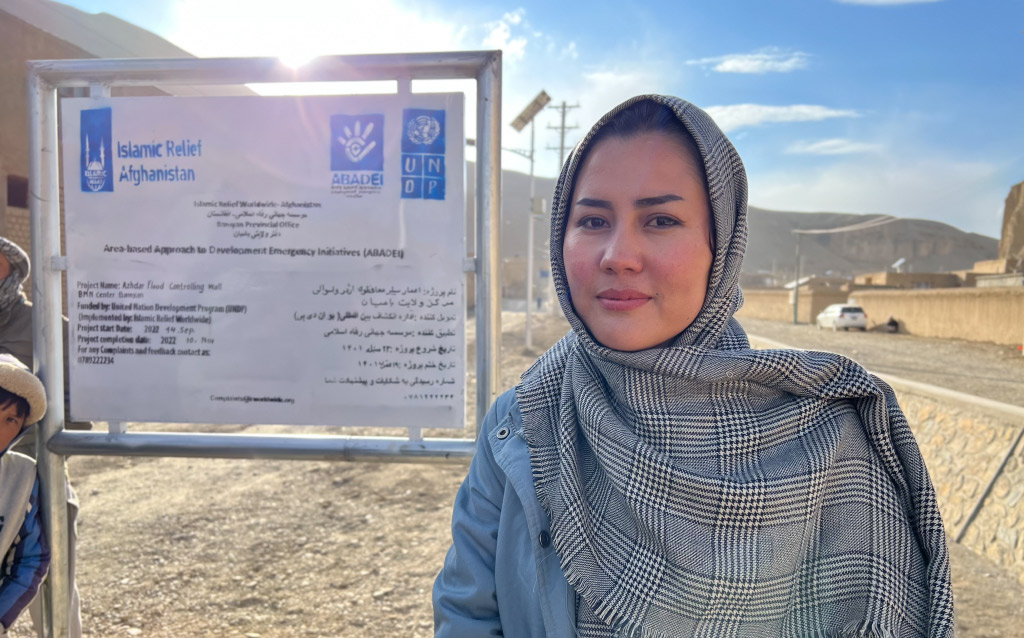
Islamic Relief also supports Afghans facing hunger, including survivors of a devastating June earthquake, by providing unconditional cash to help meet acute nutritional requirements. Through this initiative, we directly support over 2 million men, women and children.
Women face multiple challenges to earning an income in Afghanistan. The women’s empowerment component of the partnership supports just over 1,600 small businesses owned by women. It provides training, grants and networking opportunities to help entrepreneurs develop their products and access new markets. Many of the women supported so far have significantly boosted their profits and production as a result.
“Being an Afghan woman who works outside the home is very difficult,” Sakina says. “I am the only woman working among 300 men, but I will continue working and doing my best. I wish and pray for all women to achieve their dreams and for Afghan girls to have the freedom to learn, work and improve themselves. I thank Islamic Relief for supporting my work here. [Many] of your staff are also women, which shows Islamic Relief’s respect for us.”
Late in 2022, the authorities in Afghanistan bar most women from working in humanitarian organisations, with immediate and devastating consequences for vulnerable people throughout the country. Islamic Relief joins other organisations in calling for a swift reversal of the ban.

